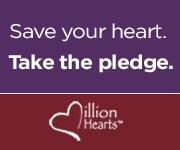Do’s
- Keep
and follow your medical appointments. Bring your medication along as it helps
ensure the doctor on what medication you are taking.
- Follow
the doctor’s instructions when consuming any medication. Be it,
over-the-counter medicine, cold or flu tablets, and nutritional supplements.
- Mention
all your side effects from any medication consumed. For example, the feeling of
depression and palpitations.
- If
you are having an arrhythmia symptoms, a new symptom or the symptom worsen, inform
the doctor.
- Take
care of yourself. Lie down if you are feeling light-headed.
- Consume
a healthy diet. Most arrhythmia cases are caused by underlying heart diseases.
Have a diet that consist plenty of fruits, vegetables, and whole grains. Commit
to physical activities regularly.
- Consume
healthy fats. As an example, olive oil, seeds and nuts. Omega-3s are found in
foods like tuna, sardine, salmon and flaxseeds.
Don’ts
- No
smoking.
- Caffeine,
alcohol and substances that can trigger arrhythmia. Caffeine is closely
associated with arrhythmia-particularly with fast heart beat
- Eat
food that are high in sodium. Salt increases blood pressure, which will then
increases the chances of having arrhythmia. Limit yourself to not consume more
than 1 5000 milligrams of sodium a day.
- Keep
away from animal fats.
- Foods
that are high in tyramine. Tyramine is a substance that are found in aged and
fermented foods. A few examples are aged cheeses (Cheddar), cured meats
(dry-type summer sausages), fermented cabbage (kimchee), certain sauces (soy
sauce) and yeast extract spreads (Marmite).
From the dos and don’ts patients can apply another
health behaviour theory can be applied to enhance adherence, for instance the transtheoretical model for stop
smoking or stop consuming excessive
amount of coffee or stop eating high-calorie foods. All of those are the
triggers of arrhythmia, thus it needs to control and stop. Let’s take coffee as an example; the patient
will start at the pre-contemplation stage, where he/she has no intention of
stopping his/her excessive intakes of coffee. Then he/she will start to feel
that there is fluttering action of his/her heart and realizing that the
excessive amount of coffee is the cause. This is the stage when he/she starts
to contemplate and wants to stop drinking too much coffee. The next stage is
preparation, he/she will prepare a coffee flavoured sweets, which contains only
a small amount of caffeine, or a chewing gum to replace coffee. Then the action
stage, he/she may decrease the number of cups that he/she takes every day for
example, only one cup per day and to be taken only during breakfast is to be
accomplished in a month time. Then improve on the progress made by drinking
only five cups a week, only on weekdays. Lastly, he/she should maintain with
drinking 5 cups of coffee during weekdays for every week, while trying to avoid
tempting situations.


0 comments:
Post a Comment